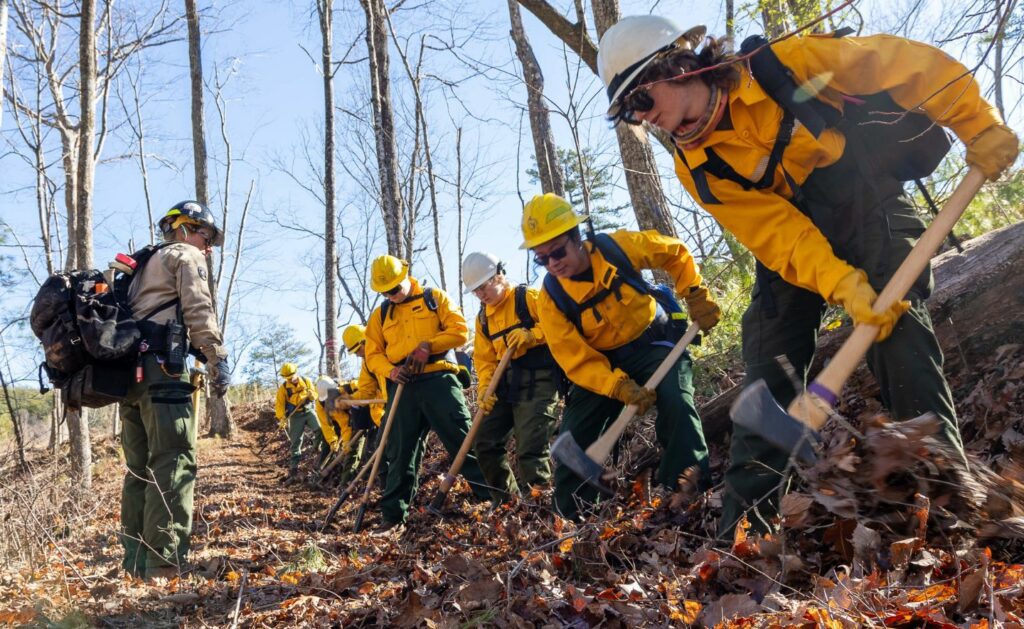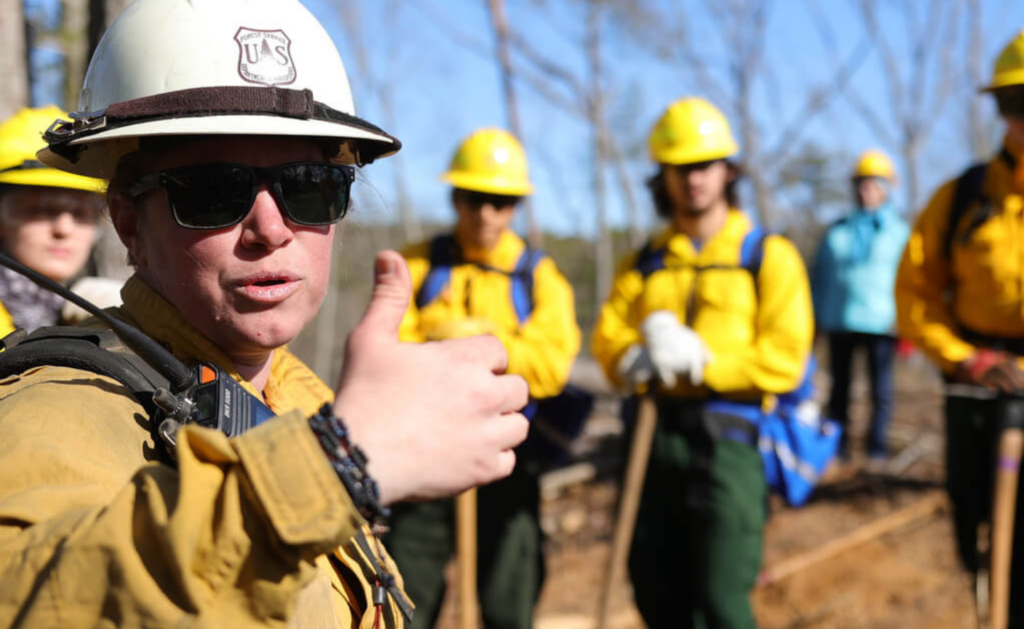The next Wildland Fire Academy will begin in 2026. Check back for updates!

The Student Conservation Association (SCA) has teamed up with the U.S. Forest Service to launch the Wildland Fire Academy to confront the current wildfire crisis.
Program participants will start the program together for orientation, Wilderness First Aid training, and several certification courses to obtain federally recognized fire qualifications with the Forest Service. Program participants will also receive rigorous training for chainsaw operations to become certified entry-level chainsaw operators.

After training, participants will be placed in pairs at national forests across the western United States most impacted by the wildfire crisis for the remainder of the program. Participants will gain hands-on experience with prescribed burns and fuels reduction work while embedded with Forest Service staff. Following a brief break in early June, participants will return to form four-person fuels reduction crews at national forests from mid-June – to mid-September.
Prescribed burns and fuels reduction work are crucial for preventing wildland fires since varying plant materials, including grasses, shrubs, trees, dead leaves and fallen pine needles, can fuel wildfires. As these flammable materials pile up, so do the chances of catastrophic wildland fires. In the right conditions, excess fuel allows fires to burn hotter, larger, longer and faster, making them more difficult and dangerous to manage, making it essential to have trained wildland firefighters and fuels staff at the ready.
The Forest Service has been managing wildland fires on National Forests and Grasslands for more than 100 years. As the wildland fire management environment has changed, there are now longer fire seasons, bigger fires, extreme fire behavior and more wildfires closer to residential areas.
Join our community of supporters who care deeply about preserving parks, public lands and urban green spaces.
"*" indicates required fields
